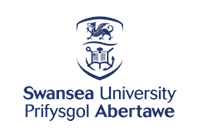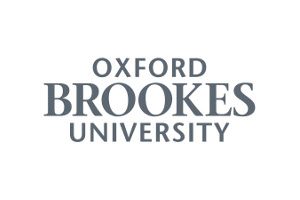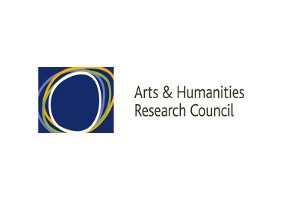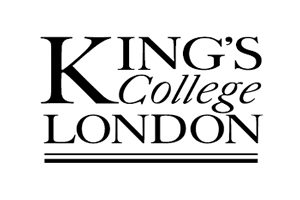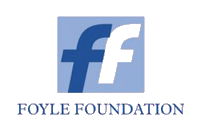Elizabeth Montagu Correspondence Online: 2024 Interns
The three 2024 interns undertook their internships between May and August. They worked an average of 12 hours a week to complete a set of letter transcriptions of correspondence between Elizabeth Montagu and her friend, Elizabeth Carter. After completing the transcriptions, the interns were taught how to use XML code and saw their letters published on the EMCO website. Abby Hammond, Constance Halstead, and Katie Devlin discuss their experiences of working with EMCO in this blog.
- What is your background? What were you working on before you started the internship?
Abby: I am currently working towards my PhD at Northumbria University. Starting the internship in May meant that I was just past half-way through my first year of the PhD, meaning I felt settled enough in the PhD process that I felt I could take on extra work in the form of the EMCO internship. My background is really social and gender history in the long eighteenth century, having completed my undergraduate degree at Newcastle University on Old Bailey theft and violent theft trials, with a particular focus on women.
Constance: I began the EMCO internship as I reached the end of my first year as a PhD student at the University of York’s Centre for Eighteenth Century Studies, where I am the recipient of the Sally Wainwright Scholarship for the Study of Anne Lister. My thesis is called ‘Telling “all as it really is”: form and formation in Anne Lister’s manuscript and digitised journal’. It investigates how Lister negotiated eighteenth century conventions of journal writing, adapted it to her own purposes, and utilised its affordances to materialise her ongoing self-invention. I’m particularly interested in the manuscript and different written forms of Lister’s journal. Before this I completed my BA at Christ Church, Oxford, my MLitt at the University of St Andrews, and then worked as a librarian.
Katie: At the start of the internship I was writing a dissertation, ‘Magic in London – a special case?’, examining witchcraft and magic in London from the mid-sixteenth century to the late eighteenth century. This was for an MA in Early Modern History, which I’ve now completed. I also work part-time in a community history museum, coordinating events, creating social media content and introducing our collection to the public.
- Why did you want to work on the Elizabeth Montagu correspondence?
Abby: For me, there were really two reasons I wanted to work on the project. As I had written my undergraduate degree during the Covid-19 pandemic, my archival visits and use of eighteenth century material sources was lacking. I found it particularly difficult when I came to my PhD, and I was confronted with wills and probate records from the period with some very niche words and tricky handwriting! My friend, Charlotte, who had previously completed the internship and now works as a research assistant for the project recommended the project to me as a way of boosting my palaeography skills. Charlotte had also told me how much she enjoyed the project more generally, and it was really thanks to her that I applied as it just sounded like an incredible opportunity!
Constance: The main reason I wanted to work for EMCO is my enthusiasm for the digital humanities which stems from my own PhD project’s reliance on digital resources. I value the potential of open access projects such as EMCO to democratise literary texts, resolving the difficulties of accessing physical archives and making available large-scale archives which – like Montagu’s correspondence or Anne Lister’s journals – are difficult to publish in traditional printed editions. I am particularly passionate about the different forms of study digitisation and facsimile images facilitate, enabling a shift from a focus on the content of texts to readings which attend to generic, textual and material considerations. I hope to contribute to a digital edition of Lister’s journal and letters in the future. The skills and experiences to be gained by working on the EMCO project will be invaluable for this, and it’s been wonderful to have the opportunity of working with and learning from the EMCO team. I was also keen to learn more about eighteenth-century epistolary conventions and Elizabeth Montagu (who has interesting links to Lister).
Katie: Although most of my studies have a pre-eighteenth-century focus, I’d been volunteering with EMCO on and off since 2021 and was keen to get involved in different aspects of the project, particularly transcription and research. The project appealed to my interest in highlighting women’s voices in the historical narrative – for example women petitioners in the English Civil War. I’m interested in a career in the heritage sector, and digitisation projects like EMCO have become really critical to communicating history to the public, as well as facilitating expert research. This was a great opportunity to get experience and learn about how this kind of digital project works first hand.
- How did you find the project being fully digital?
Abby: It was slightly strange working on a project where all the people are spread across the country, but I think the Covid-19 pandemic had really set everyone up for this type of online working. The work groups that occurred every month were really lovely, as it allowed us to put faces to names we had just seen through email!
Constance: The digital nature of the project was great in providing flexibility. Because most of the work was independent, it fitted well around my other commitments, but it was also easy to check in and communicate with other members of the group.
Katie: This wasn’t my first experience working digitally as I’ve done some remote fact-checking for non-fiction books, but I thought EMCO created a good balance of independent work and collaboration so it really felt like a team effort. It would be lovely to meet everyone in person one day, though!
- What were your strengths whilst undertaking the internship?
Abby: Personally, the coding aspect of the internship came easiest to me. It was something that I had a bit of experience in previously so I understood the basic rules of coding (every ‘opener’ must have a ‘closer’!), and so I think I picked it up quickly because of this. The coding could be very frustrating if something went wrong and you couldn’t figure out why… but most of the time it was satisfying to see the fruits of your labour when the code worked on the EMCO website!
Constance: My strengths in this project were chiefly in transcription. Anne Lister’s writings are largely unpublished so my own PhD is rooted in archival research and I spend lots of time transcribing documents. Lister wrote partly in a cipher of her own invention and used very extensive abbreviations, compared to which Elizabeth Montagu’s hand is quite easy to read (for the most part anyway)!
Katie: I enjoyed the transcription work greatly, and found that it became pretty fast once I got to grips with Montagu’s handwriting. I also found my experience doing my own genealogical research came in handy when it came to identifying the people mentioned in the letters, and it was very rewarding to finally track down someone who’d been difficult to trace – long lines of family members with the same name come to mind…
- How did you find working with the other interns?
Abby: The other interns were so lovely and it was a really nice environment to be in. I always knew I could send questions over to them and we all tried to help each other as much as possible. I thought it was really cool how we all had different strengths which ended up complimenting each other!
Constance: It’s been a delight to work with all the other interns - everyone has been so friendly and supportive. Despite being at different universities, this has been a wonderful way to meet other students with similar interests and it’s great that we’ve managed to meet in person at various conferences and events.
Katie: Working with the other interns has been really fun, they’ve been incredibly helpful with any issues I’ve had, and it’s been great to have other people in the same boat as we’ve gone through the process. It’s lovely to meet new people in different areas of study, and to work in such an encouraging environment.
- Did you have a favourite letter from the batch you completed?
Abby: I really liked all the letters that spoke about Newcastle or Northumberland, because that is where I live! I am actually writing a conference paper on Montagu’s business life in the North East, which was inspired by the Carter letters I transcribed. I am also interested in Montagu’s fascination and frequent comments on sickness and death, a theme that is consistent throughout the Carter letters. Usually her comments revolved around her friends and high society, but occasionally she spoke more broadly, such as in 1783 when she wrote: “I am the more alarmd as I hear London is very sickly. The poor people here are very ill in fevers & fluxes”.
Constance: Generally I loved the letters which used extravagant extended images – I enjoyed transcribing a word and thinking surely it can’t be that, only to work out the way in which Montagu was using it to a humorous or exciting effect. The line which most excited me, however, was when Montagu described how her ‘way of passing my mornings, would make a bad figure in a journal, if I kept one’. This reinforced to me just how associated diaries were with making a good use of time, but also how this association was so conventional as to be humorous in Montagu’s usage.
Katie: Montagu could be very witty and I did enjoy some of the letters that she would probably not have wanted certain friends to read! There were some very scathing comments about Agmondesham Vesey in some of the letters I worked on from around the time of his death, my favourite of which was “I had not any expectation of the energies of virtue from Mr Vesey, but I thought his habits of Hypocrisy, & plausibility, wd have made him act with decency towards a Wife so generally esteamd by the World, & so tenderly beloved by her Friends” – ouch! Since the first batch of letters, I also worked on one from 1750 which described an earthquake in London – as a lifelong Londoner I had to check my transcription a few times to check I was reading it correctly.
- If you could meet one historical person from Elizabeth Montagu’s time period, who would you want to meet?
Abby: The obvious answer would be Elizabeth Montagu, and I do think she would be incredible to meet! I would love to see what she thought of Newcastle in the modern day. Otherwise, Lady Mary Wortley Montagu (cousin by marriage to Elizabeth) would be my next choice. She was an incredible academic, literary genius, and pioneer of inoculation against smallpox after journeying to Turkey.
Constance: I’m trying to teach myself ancient Greek at the minute so this would have to be Elizabeth Carter! Although, I’ve also done some work on Catherine Talbot’s journal recently and I feel a great deal of sympathy for her obsession with productivity.
Katie: I’m reading Tom Jones at the moment, and I’d love to have dinner with Henry Fielding, who also gets the odd mention in Montagu’s letters. Aside from Fielding, I’d be tempted by one of the eighteenth-century cunning men and women I recently researched for my dissertation.
- What are you up to now? Are you still working on Elizabeth Montagu?
Abby: Yes, I contribute about 5 hours a week on the EMCO project. We are currently working on coding some letters from Montagu to Lord Bath. Apart from this, I am still working on my thesis which I am hoping to finish by 2027, which revolves around the business lives of women buried at Newcastle Cathedral in the long eighteenth century. I am also working on an exhibition with Charlotte about letter writing!
Constance: I’m continuing to work for EMCO, which provides light relief to my ongoing PhD work on Anne Lister.
Katie: Yes, I’ve continued working on the EMCO project, coding some new letters and hopefully contributing to this blog! I finished my MA in October and am now finding my feet in the heritage sector.
Please note that all dates and location information are provisional, initially taken from the library and archive catalogues. As our section editors continue to work through the material we will update our database and the changes will be reflected across the edition.
Browser support: The website works best using the Chrome, Edge, and Firefox browsers on the PC, and only Chrome and Firefox on the Mac.
